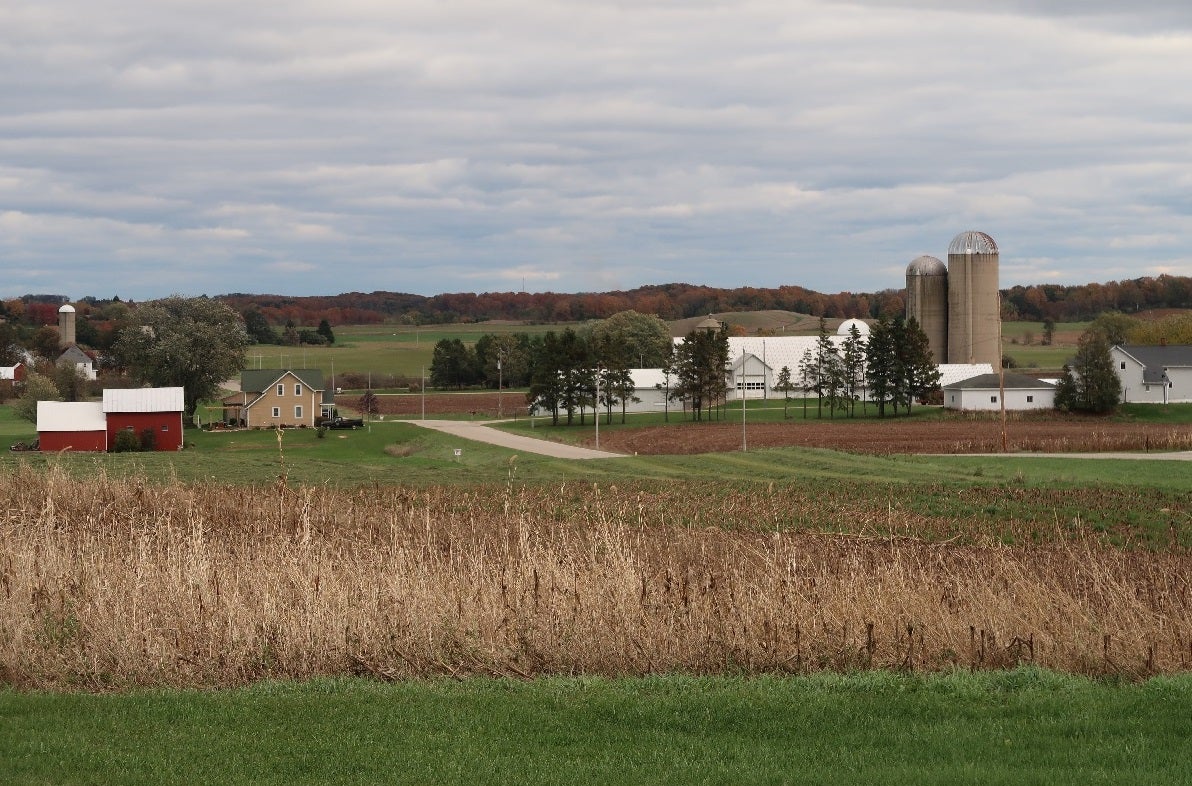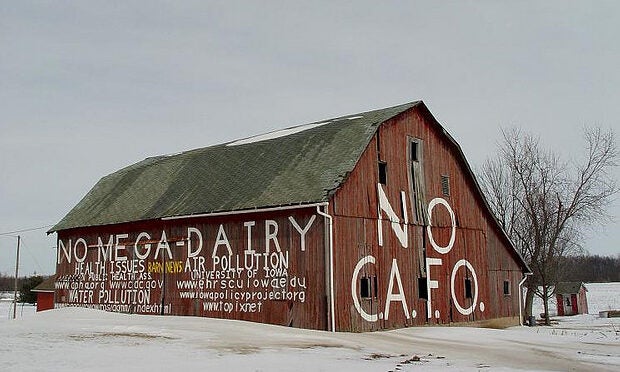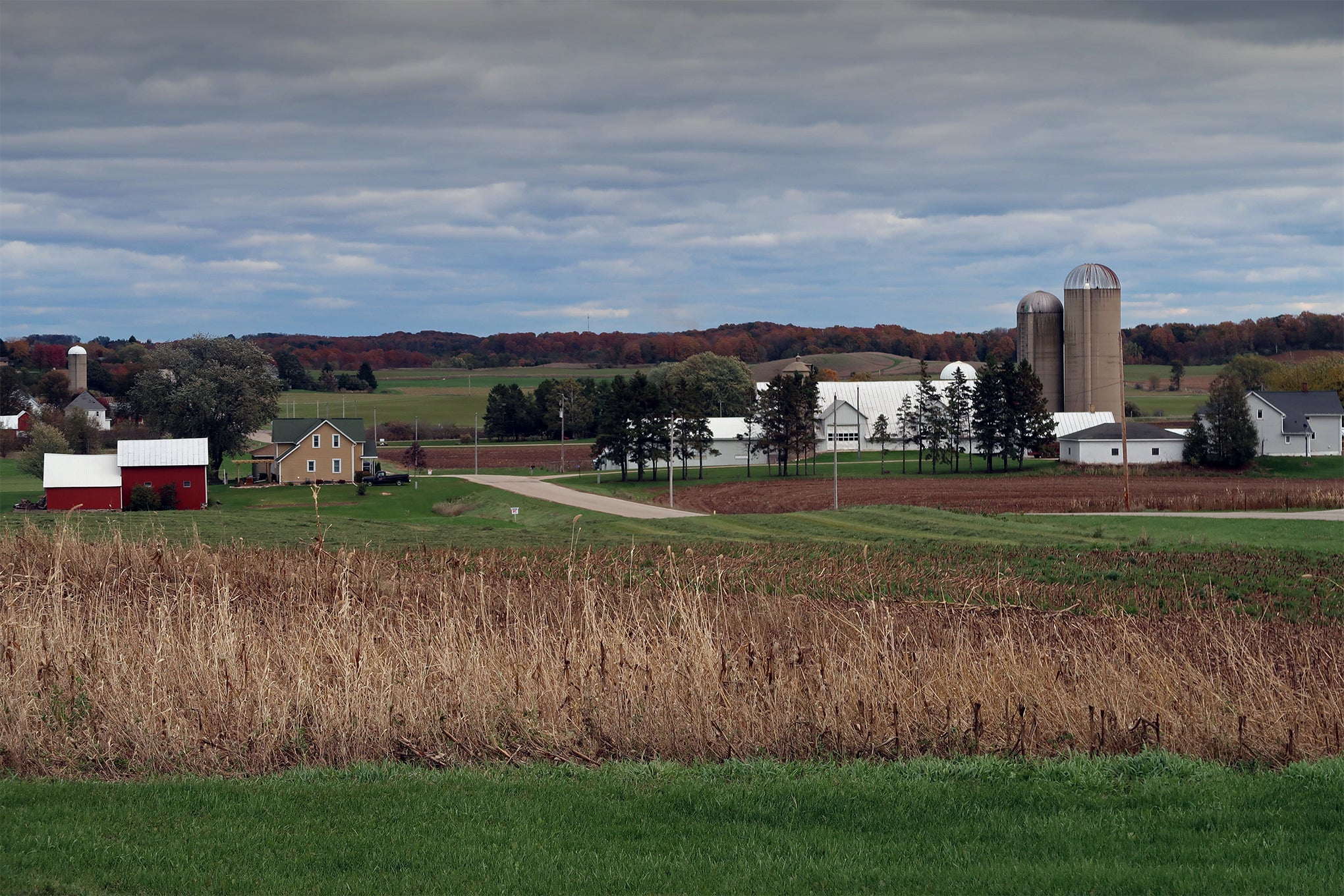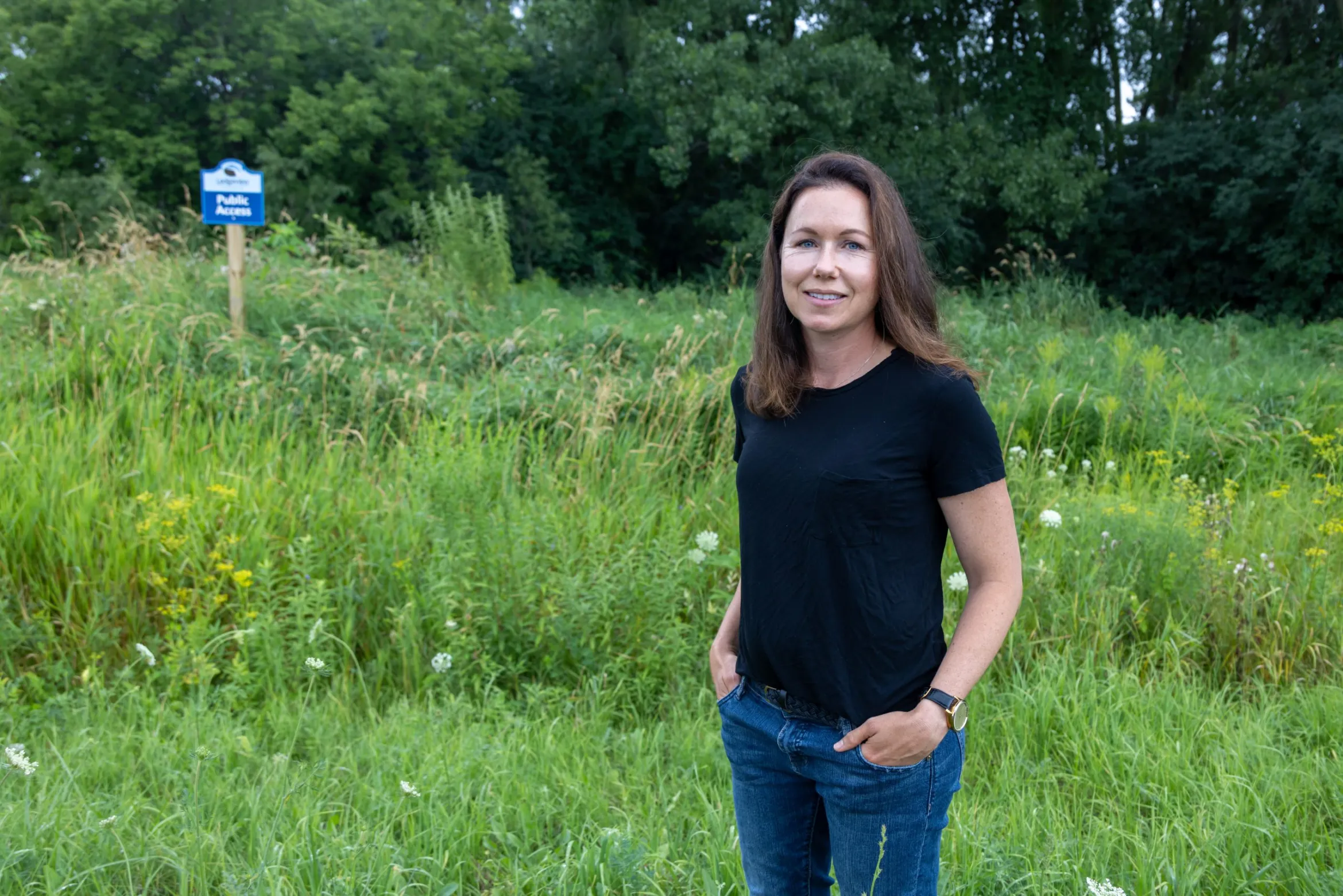The state Department of Natural Resources is working with counties and farms in eastern Wisconsin to enforce new restrictions on manure spreading that took effect last year.
Natural Resource Board members sought information at its meeting Wednesday about the agency’s monitoring of the new standards and their impact on water quality.
The new standards limit how much manure is spread on farms across 15 counties. Farms with less than 2 feet of topsoil can’t spread manure because it’s more likely it would seep through the region’s fractured bedrock and contaminate groundwater. However, the way those standards are implemented depends on the level of funding state and county agencies receive, said Brian Weigel, deputy director with the DNR’s runoff management program.
Stay informed on the latest news
Sign up for WPR’s email newsletter.
“This is a shared responsibility from the governor to the Legislature to the DNR to (the state Department of Agriculture, Trade and Consumer Protection), as well as the counties themselves,” said Weigel. “We have a shared responsibility in this implementation.”
Weigel said he believes the state had sufficient staff to oversee permitting of concentrated animal feeding operations, or CAFOs, related to the new standards. However, he noted the state budget didn’t account for enforcement funding in the last fiscal year.
So far, eight of 123 CAFOs that are within 15 miles of the affected area have been reissued permits since the spreading restrictions took effect. The new standards apply to both small- and large-scale farms, and CAFOs are coming into compliance as their five-year permits expire.
On average, Weigel said, the agency should cover about 25 permits each year.
In addition, the DNR is working to develop in-field verification methods for measuring the depth of soil to bedrock, but farmers would not be required to measure soil depth to ensure compliance. The agency is also working with the Wisconsin Geological and Natural History Survey on updating county maps, as well as holding meetings with county land conservation departments and the farming industry.
Natural Resources Board member Greg Kazmierski questioned what the agency is doing to “make sure that what we’re asking people to do and comply with is actually having an impact.”
Weigel said one way to gauge the impact of the new regulations is to study groundwater quality in the region.
“There was a study conducted where they randomly sampled about 300 wells in the area,” said Weigel. “A repeat of that study would be one good way to look forward down the road to quantify that or characterize the water quality.”
Board member Frederick Prehn said they want to have baseline information so it can be used to assess the effectiveness of standards, as well as use it to inform practices in other parts of the state with similar challenges.
“The public wants to know when they turn their faucets on there’s not contaminated water,” said Prehn.
Board member Bill Bruins added people also need to recognize the dairy industry is in one of the longest bear markets for milk prices.
“Dairy in particular is really struggling right now, but I don’t see the implementation of these standards is going to be particularly onerous if there’s good cooperation from the department and everybody involved,” he said.
Gov. Tony Evers’ pick for DNR secretary, Preston Cole, said he would meet with agriculture officials on the new standards, including Brad Pfaff, the new secretary for the Wisconsin Department of Agriculture, Trade and Consumer Protection.
“Be excited that we are on this journey now and this journey is going to provide us some opportunities to make drinking water in the state of Wisconsin, specifically where it’s not safe for people, to begin to make it safe for people,” he said.
The DNR is planning to hold eight CAFO workshops across the state during February that will include information about implementing the new standards.
Wisconsin Public Radio, © Copyright 2025, Board of Regents of the University of Wisconsin System and Wisconsin Educational Communications Board.




